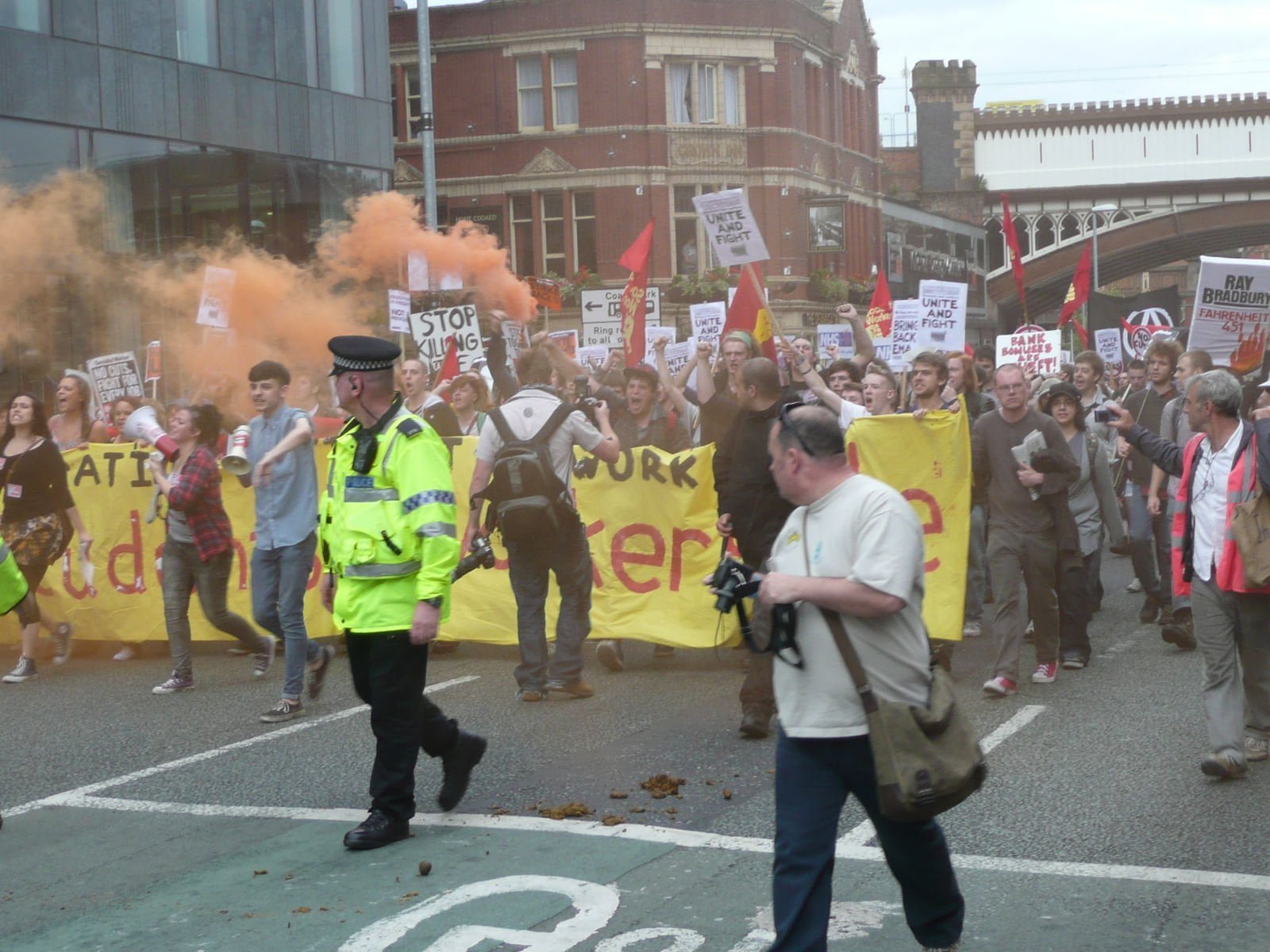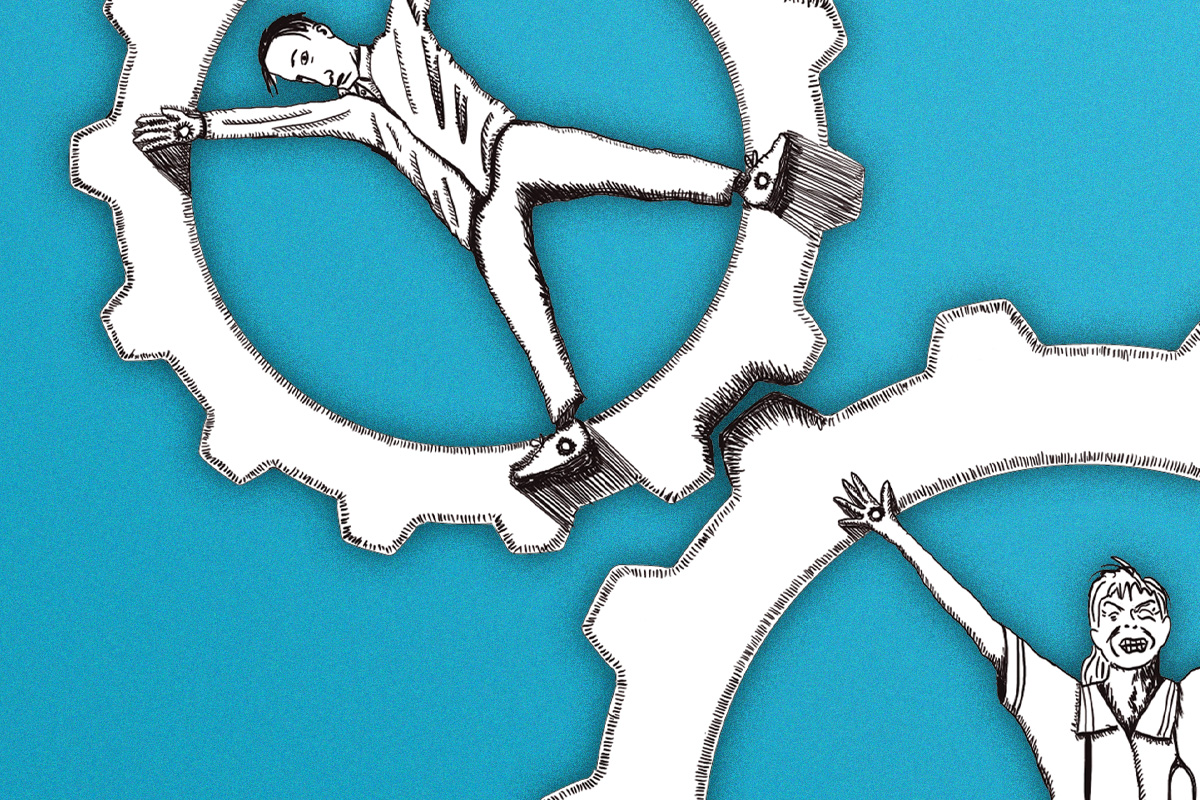On Sunday October 2nd, some 40,000 trade
unionists and anti-cuts campaigners took part in a March for the Alternative
through the streets of Manchester city centre to lobby the Tory Party
Conference. Although this was a national TUC organised event it was obvious
that most of those present came from the North and North West of the UK with
only a sprinkling further south from Wales, Bristol and some parts of London.
On Sunday October 2nd, some 40,000 trade
unionists and anti-cuts campaigners took part in a March for the Alternative
through the streets of Manchester city centre to lobby the Tory Party
Conference. Although this was a national TUC organised event it was obvious
that most of those present came from the North and North West of the UK with
only a sprinkling further south from Wales, Bristol and some parts of London.
The North West TUC had done its job and the results were
impressive. The big battalions of labour were present with many industrial
workers mobilising from Unite, the RMT and the GMB as well as PCS, Unison, and
the teacher unions of NUT, NASUWT, UCU and ATL. A very large contingent of
students also joined the march right at the beginning.
The marchers were defiant as evidenced by the chants and the
banners. The message was simple – we did not cause this crisis and we will not
pay for it. The theme was taken up by the speakers – Len McCluskey of Unite,
Christine Blower of NUT and Mark Serwotka of PCS among others. Their speeches
moved the demonstrators to cheering and clapping.
With facts and figures each speaker showed how unfair the
Tory dominated government cuts were and how the standard of living of working
class people was being eroded directly through wage cuts and freezes as well as
job losses, and indirectly through cuts in the social wage – and still the
economy spirals downwards.
There was therefore a need for an alternative explained the platform – tax the
rich, stop tax avoidance and evasion, invest in sustainable green alternatives
and expand public spending by building houses, schools and hospitals. All of
this we would welcome, as the
burden of the crisis of capitalism is being borne by the working class while
those who were instrumental in triggering it are enjoying fat pay packets and
even fatter bonuses. For the rich there is no crisis.
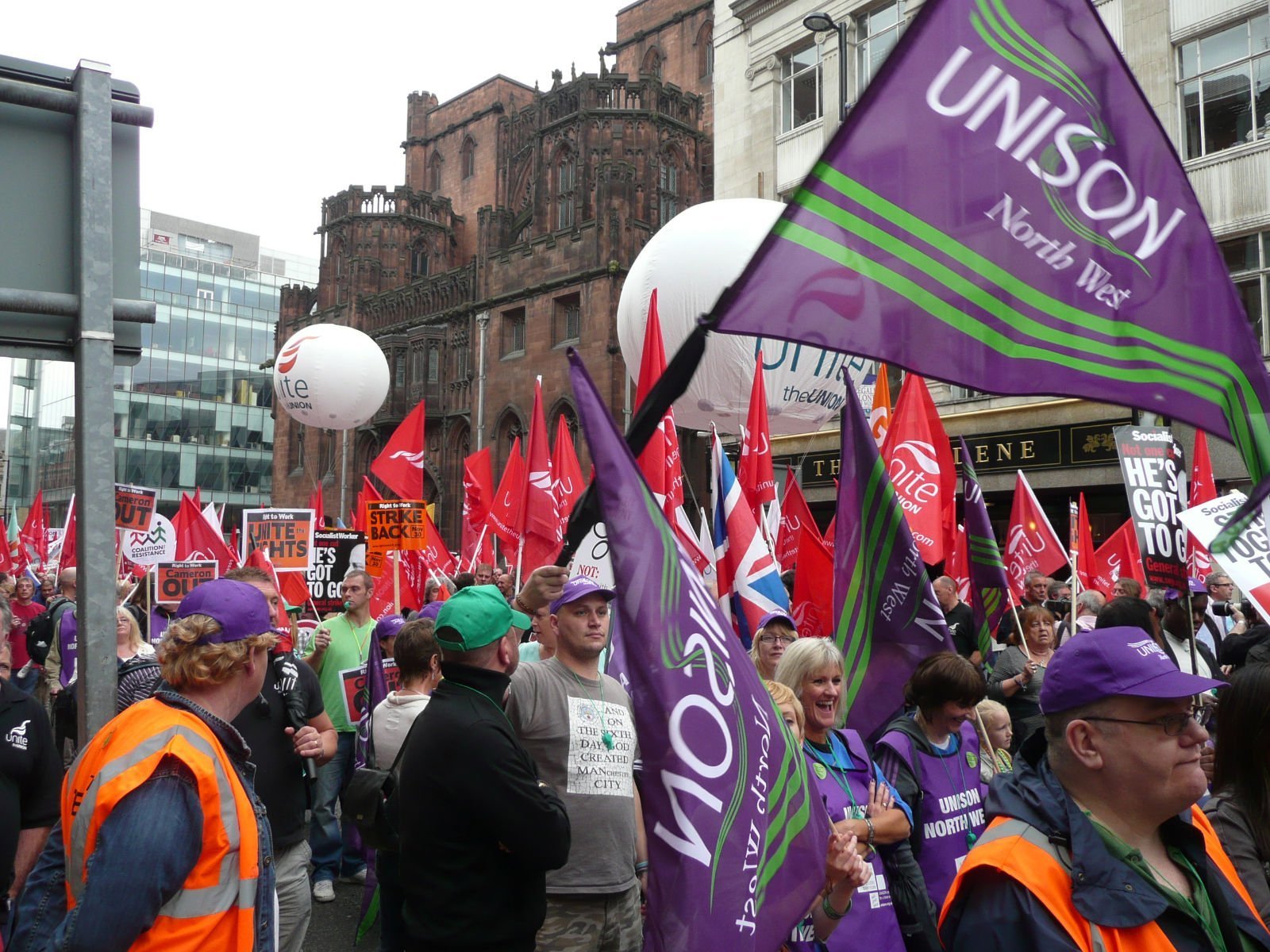 At the same time as supporting these albeit limited demands for alternative
At the same time as supporting these albeit limited demands for alternative
policies we also have to be honest and ask some relevant questions, such as how
do you tax the rich when they control the wealth? How do you expand public
spending when the bond markets demand the opposite so that when they buy
government bonds they will not run the risk of not getting their money back by
a sovereign default?
In other words how do you control capitalism and make it
more socially responsive by producing things that we need – homes, schools,
hospitals and social services? The answer is that you can’t. You cannot control
capitalism as it controls you. The only way to stop the anarchy of the markets,
of the spivs and speculators who make bets on whether the economy goes up or
down, who don’t give a damn for the effects of market movements on working
class people, is by taking over the wealth and power of those who own and
control the economy, the means of providing the wherewithal of life itself.
So the call today from all of the speakers for us to march
and fight in a unified manner with a common objective of defeating this
government raises the question of what it is we are marching and fighting for.
Unless we have a political programme of fighting for socialism the result will
be the same. We let off steam, we voice our concerns, we demand action – and we
fail to turn this government.
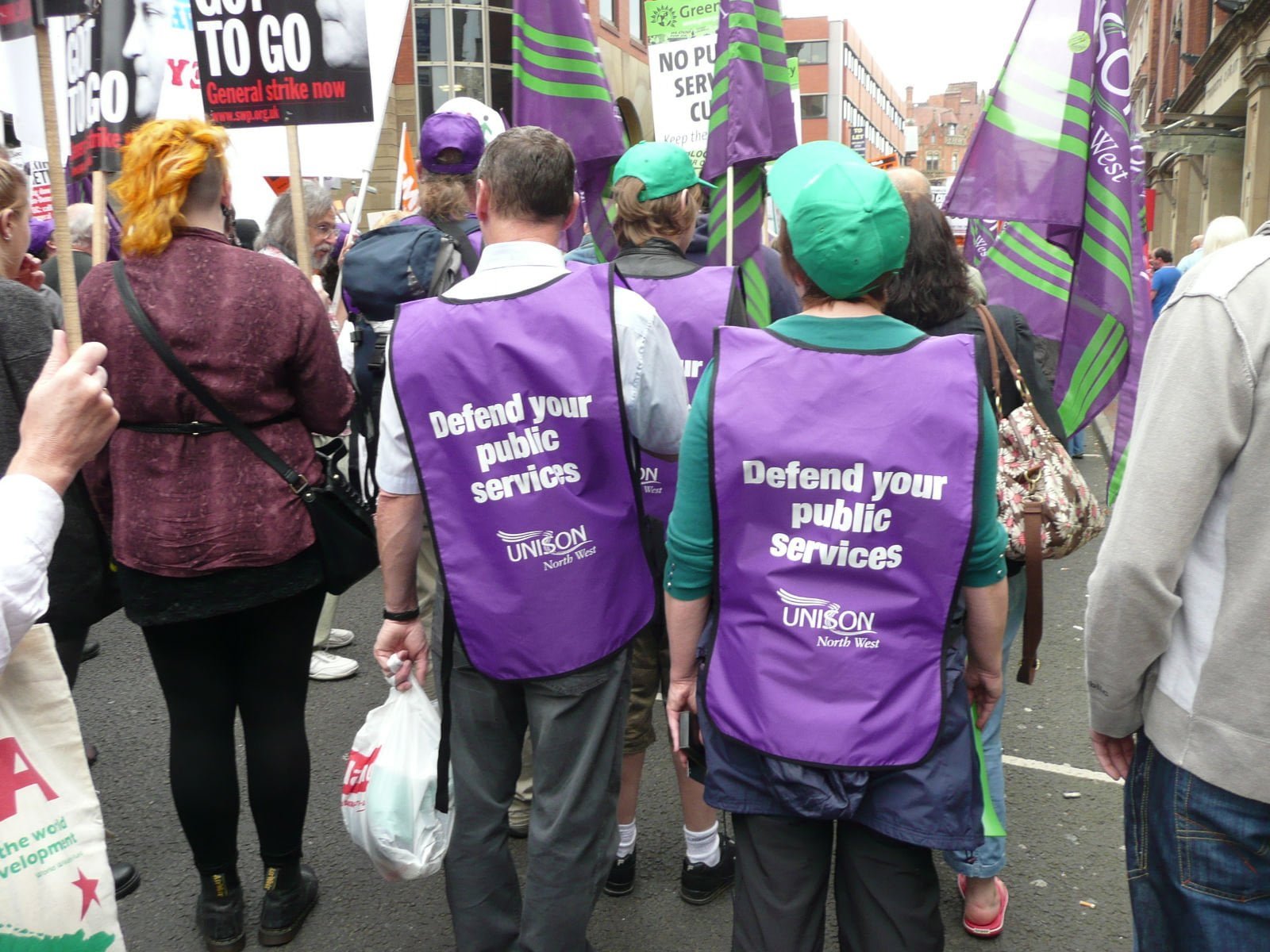 We have to march and lobby as we need to know our strength
We have to march and lobby as we need to know our strength
and feel the potential power we have. We will now begin the task of organising
for the massive show of strength on November 30th with the potential of there
being 3 to 4 million workers taking action on that day mainly to protect
pensions but also to fight against public sector cuts. But we must also realise
that unless we have a political programme allied with the might of the labour
movement, a programme that challenges the very basis of capitalism, we run the
risk of marches and rallies not achieving their objectives and thus sowing the
seeds of demoralisation and apathy in our ranks, a feeling that we cannot do
anything.
We are at the beginnings of a coordinated fight back:
- November 10th 2010, students and lecturers march in London
- March 26th 2011,
national demonstration in London (the biggest TU demo in British history) - June
30th 2011, national strike in the public sector on the issue of pensions - 18th
September 2011, lobby of Lib Dem conference in Birmingham - and today’s events in
Manchester.
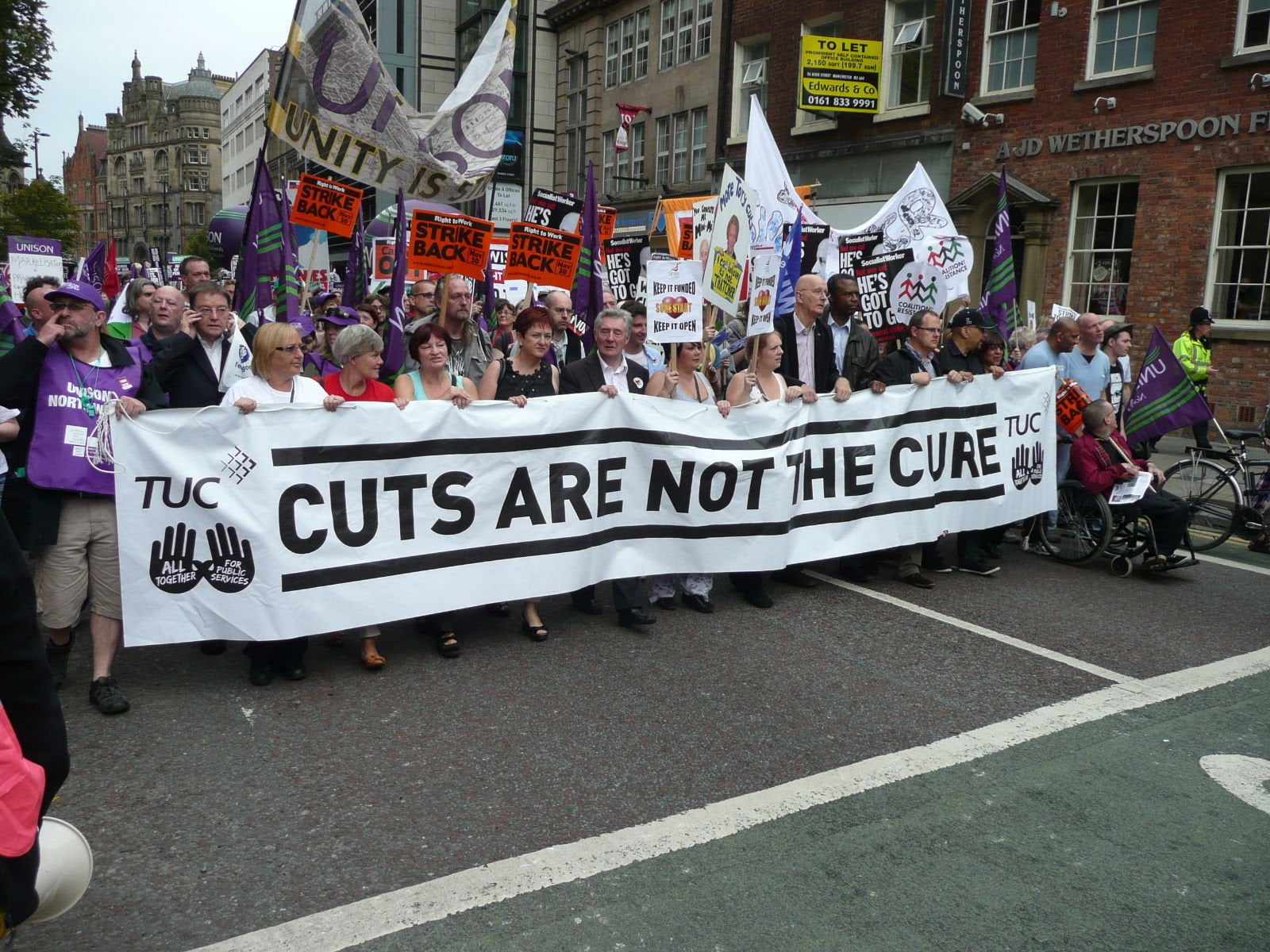 The next target is to mobilise the movement for November 30th. And
The next target is to mobilise the movement for November 30th. And
after that? More of the same? Marches alone will not turn this government. A
political programme to put an end to capitalism is the only way to ensure that
the crisis of capitalism is not paid for by the working class.

